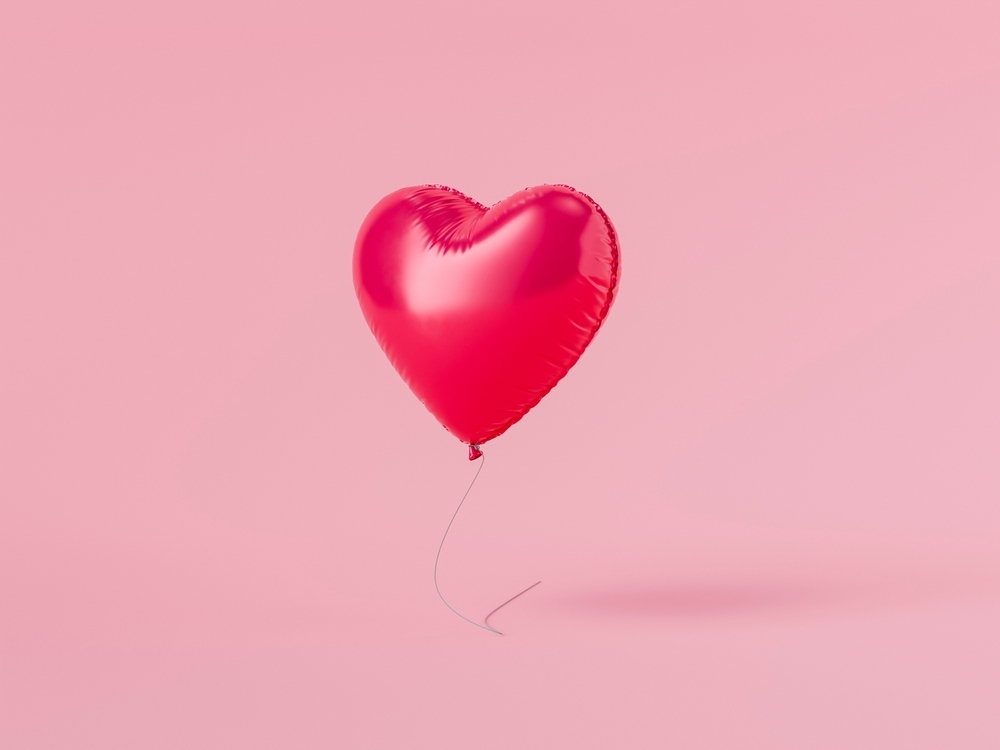
Last Updated:
March 28th, 2025
Addiction experts warn about finding new love during the first year of recovery, but when Valentine’s Day rolls around and “love is in the air,” it can be hard to block out the desire to have someone with you.
The 14th of February intensifies loneliness for many and triggers the urge to drink or use drugs to self-soothe. If you feel this way while recovering on Valentine’s Day, there are ways to help the situation and stay steadfast in your sobriety.
This article examines the importance of self-love during recovery and provides tips for better self-care this Valentine’s Day.
The meaning and importance of self-love
Self-love is when you take steps to appreciate who you really are and carry out activities that improve your well-being. Self-love starts with having positive thoughts towards oneself, and when practised properly, it can instil a deep and fulfilling sense of purpose within our lives.
Self-love manifests in different ways for each person. It can depend on your age, your location, or who you’re surrounded by. When carrying out self-love, you feel as though you’re treating yourself better, like you would a dear friend, taking steps to help that person as they go through a tough time.
Some ways people practice self-love might include:
- Sticking to a personal promise of performing a healthy activity
- Holding your well-being in high regard
- Putting your needs first instead of sacrificing to please others
- Self-reflecting on your strengths and what you value as important in life
- Making future intentions and goals that help you stay sober
- Listening to your body, resting well and eating healthily
- Avoiding comparisons to others
- Working on your internal dialogue with affirmations and positive self-talk
People can practice any of these activities during addiction recovery to help cultivate a better outlook toward themselves. It’s also important to remember not to place too much pressure on following a long, exhausting list of practices.
Viewing yourself in a better light can be undone if you’re too hard on yourself for not hitting a list of conditions. We all need to love ourselves unconditionally because we are our first and sometimes only source of support.
How addiction damages self-esteem and self-love
The Substance Abuse and Mental Health Services (SAMHSA) defines addiction as a primary, chronic disease of brain reward, motivation and memory. Being trapped for a long time in an addiction can have devastating effects on your self-esteem and the way you value yourself, effects that cannot be undone easily or quickly.
Research shows how self-esteem has a reverse correlation with drug addiction, leading to a decline in how much value a person places on themselves. The cyclical nature of addiction can mean that using a substance makes you feel worse, after which the substance seems to be the key to feeling better again. This cycle is reinforced as self-esteem deteriorates.
Improving the way you think of yourself and holding yourself in higher regard is crucial for a successful recovery. Without self-esteem, you won’t be able to respect the decisions you make to stay sober.
Having low self-esteem may mean you already feel isolated and unworthy of care, but on Valentine’s Day, these feelings can hit you even more deeply.
How co-dependency further erodes self-love
Valentine’s Day is supposed to be dedicated to showing love, but for many people with an addiction who are in a relationship, co-dependency can play a dangerous yet silent role.
A co-dependent relationship often makes addictions worse as one party becomes an “enabler” to the other’s unhealthy behaviour. As time goes by, both partners might stop communicating the way they feel and continue enabling as it’s the norm, without realising the addiction is worsening before it’s too late.
Many people overlook the dangers that lie in a co-dependent relationship, like losing sight of your own needs and sacrificing your well-being to keep your partner happy. If you’re alone this Valentine’s Day, this could be a reminder that it’s better to be in your own company and treat yourself well, than be with someone who makes recovery more difficult.
Tips to build self-esteem and self-love on Valentine’s Day
Whether you’re contemplating steps to stop addiction in your life or you’re already on the long road to recovery, there are exercises you can use to help rebuild your self-esteem.
Use these tips to help cultivate a more positive image of yourself and your outlook this Valentine’s Day:
Take the pressure off yourself
Valentine’s Day is filled with all kinds of pressure, which is a force you don’t need as you try to be kinder to yourself in recovery. We all feel the pressure of other people’s expectations from our friends, work colleagues, or complete strangers. Even our parents’ questions about why we haven’t found love can be especially painful to hear on Valentine’s Day.
Don’t allow the pressure to build up so much that it becomes overwhelming. Make a small, mindful effort to not add to the pressures that Valentine’s Day can place.
Treat yourself as you would a loved one
Whether in or out of recovery, we are often our own worst critic when it comes to past mistakes. It becomes too easy to engage in negative self-talk when something goes wrong, no matter how severe or minor the mistake is. However, imagine if your best friend was telling you they made the same mistake. Chances are, you wouldn’t speak to them as harshly as you do when speaking to yourself.
For any feelings or actions that make you speak harshly toward yourself on Valentine’s Day, stop and think about how you’d react to a loved one in your position. Be kind, caring and empathetic to help ease your negative feelings.
Be amongst nature and exercise
In the healing process, there can be surging feelings of anxiety and loneliness. Valentine’s Day comes at one of the most beautiful times of the year. Flowers begin to blossom and early spring evenings create serene twilight colours.
Getting into nature is a powerful yet simple way to practice self-love. In fact, a 2019 study shows that spending 2 hours a week in nature is directly associated with better health and well-being. Combine natural scenery with exercise, as lightly as you can manage in your addiction recovery process, such as a pacy walk or jog. Your mind and body will feel stronger for it.
Consider your relationship with social media
On the days leading up to Valentine’s Day, look at how much time you spend scrolling social media. Valentine’s Day is a time when most companies ramp up their efforts in marketing, bombarding you with products for a partner and or visuals about the “ideal body image”
Research shows how excessive social media leads to poor sleep patterns, depression and worsened mental health, all of which impair the recovery process. Try reducing and replacing this time with an exercise focused on gratitude. In the days leading up to and on Valentine’s Day, write 2 things you’re grateful for each morning into a physical notebook. Simple exercises of gratitude can remind us of the things we have in our lives rather than the things social media wants us to buy.
Finding support this Valentine’s Day
Your sobriety, your peace and your overall well-being are what we’re here for. If Valentine’s Day is bringing up difficult emotions, remember that you’re not alone. Whether you’re struggling with addiction or self-esteem issues, seeking professional support is the best way to move forward.
At UKAT, we offer compassionate, evidence-based treatment to help you rebuild your life and prioritise your well-being. Our staff are trained to deliver holistic treatment programmes for alcohol and substance detox with your well-being in mind.
If you or a loved one need support, reach out to us today. Learning to love yourself in recovery can be the best step toward a sober, healthy and substance-free life.
(Click here to see works cited)
- “Why Addiction Is a ‘Disease’, and Why It’s Important” – Samhsa, www.samhsa.gov/sites/default/files/programs_campaigns/02._webcast_2_resources.pdf
- Alavi HR. The Role of Self-esteem in Tendency towards Drugs, Theft and Prostitution. Addict Health. 2011 Summer-Autumn;3(3-4):119-24. PMID: 24494126; PMCID: PMC3905528.
- O’Brien PE, Gaborit M. Codependency: a disorder separate from chemical dependency. J Clin Psychol. 1992 Jan;48(1):129-36.
- White, Mathew P., et al. “Spending at Least 120 Minutes a Week in Nature Is Associated with Good Health and Wellbeing.” Nature News, Nature Publishing Group, 13 June 2019, www.nature.com/articles/s41598-019-44097-3.
- Beyari H. The Relationship between Social Media and the Increase in Mental Health Problems. Int J Environ Res Public Health. 2023 Jan 29;20(3):2383. doi: 10.3390/ijerph20032383. PMID: 36767749; PMCID: PMC9915628.



